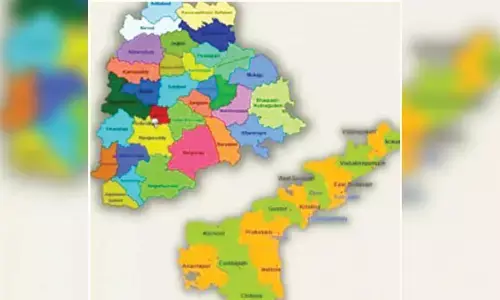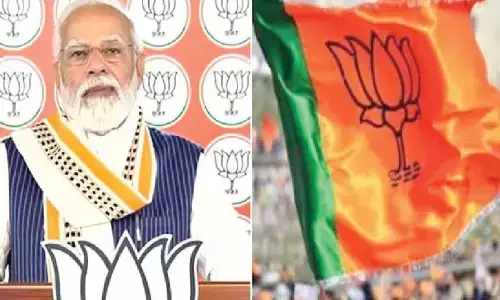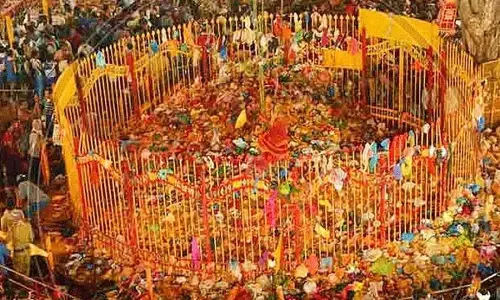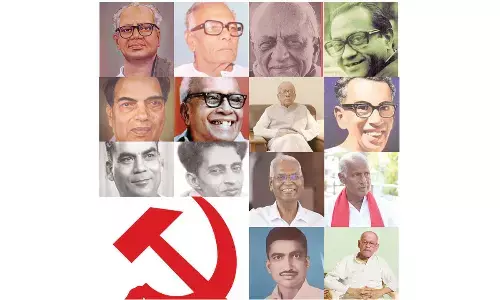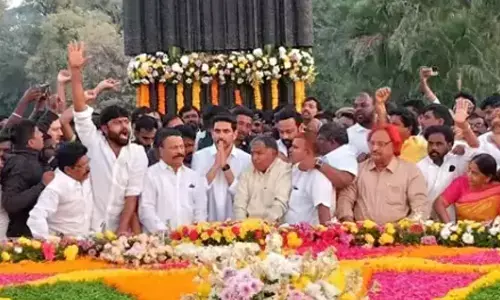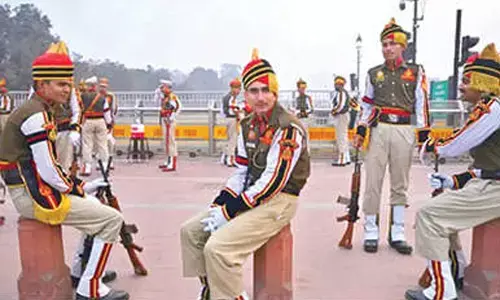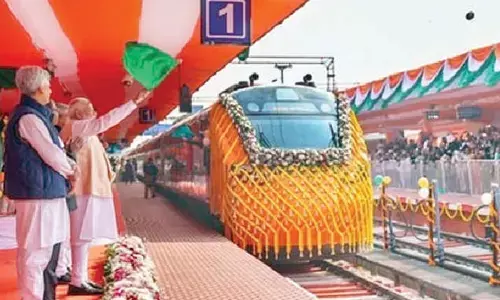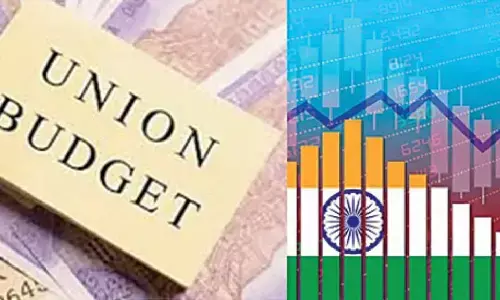Dasara – Victory of good over evil
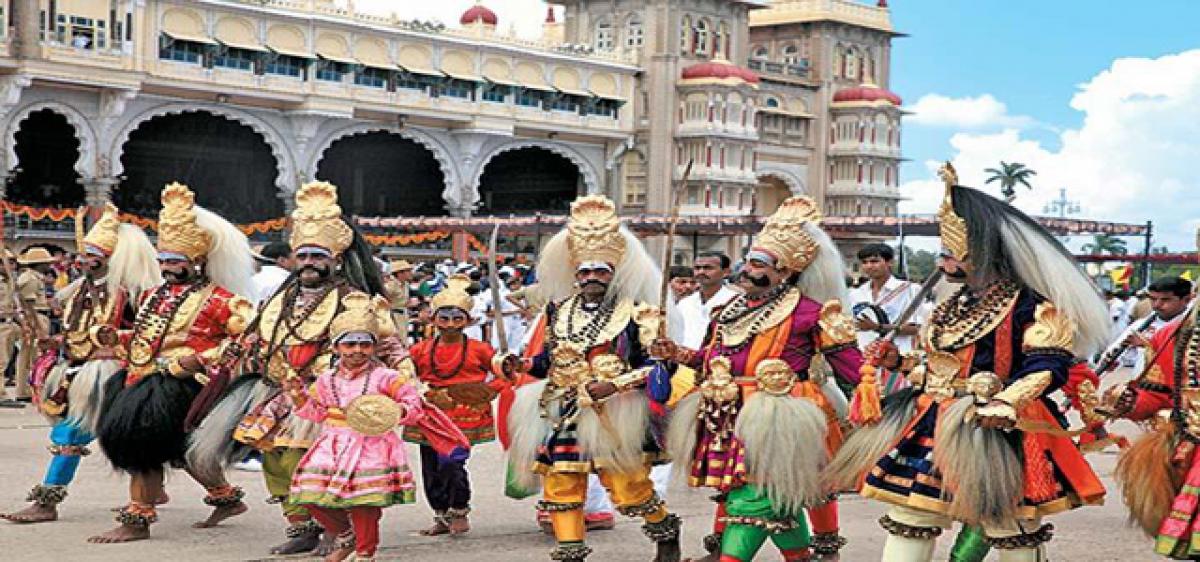
Dasara (Dasarrah, Dasherrah, etc) is one of the most important festivals of the Hindus, across the globe. Ten-day celebration culminates on Dasami or Vijayadasami, the tenth day of the Asvayuja month of the Lunar Calender. (September-October).
Dasara (Dasarrah, Dasherrah, etc) is one of the most important festivals of the Hindus, across the globe. Ten-day celebration culminates on Dasami or Vijayadasami, the tenth day of the Asvayuja month of the Lunar Calender. (September-October).
Gaiety and fervour differ from place to place. Depending upon the local customs and traditions, mostly Ramayana and Mahabharata, different reasons are attributed to the festivities. It is Kali or Durga Puja in Bengal; Bangladesh too.
Vijayadasami is an auspicious day for beginning formal literacy. Students keep their books and workers their tools for puja on the ninth day of Navratri (Ayudha Puja) these are taken back and used after puja on Vijayadasami. In many parts of South India, non-Hindus too follow this tradition; in 2004, many churches in Kerala are said to have began school on this day. In Telangana Bathukamma, a floral festival is celebrated by the Hindu women from Bhadrapada Amavasya, also known as Mahalaya/Peddala Amavasya till the eight day of Asvayuja, popularly known as Durga Navaratri, ending on Durgashtami. NRIs celebrate the event according to their ancestral traditions.
According to the scriptural chronologists, both the Ramayana and the Mahabharata wars were fought in the same month or the succeeding one. It is a war favour season. Triumph of Rama over Ramana is well-known story. Hence it is Ramalila Utsav in many parts of North India. Suravaram Pratap Reddy, a legendary Telugu scholar, in his treatise, Hindu's Festivals, published with an introduction by Dr S Radhakrishnan in 1931, balances it in favour of Ramayana.
As per the conditions of the dice sport, between the Pandavas and the Kouravas, the vanquished Pandavas, during the exile after 12 years in forest, were leading their life in incognito in the palace of Virata. Keechaka was the brother-in-law of Virata and the chief of the armed forces. On seeing unmatched beauty of Droupadi, disguised as Sairandhri, Keechaka could not resist his sexual temptations.
As he was attempting to advance, Bhima, in the guise of a cook kills him in a bout. As the news of the death of Keechaka spread far and wide, Duryodhana sensed that none other than Bhima could kill Keechaka. Hence he laid a seize of Viratanagari on the Ninth Day (Navami) of the Asvayuja month. Pandavas had secreted their arms in a Shami tree or Banni tree near the crematorium; lest they could be identified.
Arjuna downs his Gandhiva Bow from the tree and after cleaning, settled for the battle. Hence on Navami, specifically known as Mahaarnamai all the machines and weapons, even in police stations, quite possibly in the army also are worshiped; Ayudha Puja. Next (Tenth) day, Dasami, war was fought and Virata's army, under Arjuna's command emerged victorious; hence called "Vijayadasami".
Hence the Dasara celebrations are age immemorial. In the middle ages, Vijayanagara Empire had excelled in its rendezvous. The Dasara festivities began with the Vijayanagar Kings as early as the 15th Century.
The Persian Ambassador, Abdur Razzaq, reported the Dasara observance (originally Mahanavami) in Vijayanagara during his mission to India in his book entitled Matla-us-Sadain wa Majma-ul-Bahrain (The Rise of the Two auspicious constellations and the Confluence of the Two Oceans), a major work which contained an overview of the history of this part of the world from 1304 to 1470. Hence Dasara Festival in Vijayanagara was celebrated even earlier to Sri Krishnadevaraya.
However, the Dasara or Mahanavami Dibba one of the most impressive structures in Hampi, the typical Vijayanagara style of architecture was built by him. It is a beautiful stone platform that is located within the Royal Enclosure of Hampi.
After the fall of Tipu in Mysore, the restored rulers, Wodeyars of Mysore gave a rebirth to Dasara. The Royalty is gone. But the festivities continue. According to the legend, Chamundeswari, the presiding deity of Mysore slayed Mahishasura, the demon, on the day. Hence the place came to be known as Mysuru. The ten-day gala attracts tourists from all parts of the country.
However, on account of the disturbances, owing to Cauvery row between Karnataka and Tamilnadu, this year it is a low key affair. Most important part of the festival is the Procession of the King to the Banni Pial.
Botanical term of the tree is varied. In common language it is known as "Khejri" or "Loong tree". The tree created a tradition and is still revered. All over AP, Telangana and Karnataka Hindus visit the tree, go round with reverence and exchange the leaves with relatives, well wishers and friends. They chant: "Shami Tree eludes sins. This massacres enemies.
This bears the weapon of Arjuna. It pleases Srirama. It shelters the pilgrims. It renders service without hindrance." The evergreen tree indicates the existence of plenty of underground water. On account of the variation in the movement of the Stars, this year the festival is dragged on to eleven days. All Hindu festivals are sentimental or symbolic or scientific or any two or all the three; seldom superstitious.








